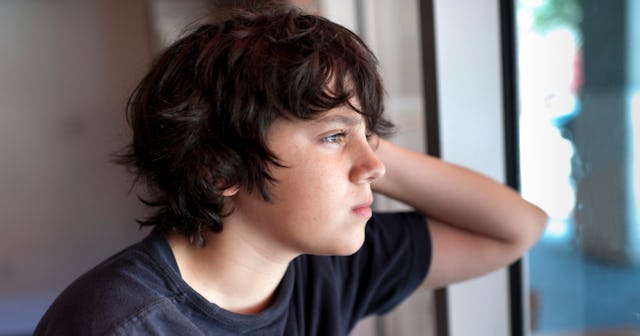What We Need To Know About Our Tweens’ Brains

Some parts of parenting get easier as my kids get older, but other parts feel more complicated and the stakes feel higher to get it right. All stages of emotional and physical development are tricky, but teething, potty training, and teaching my kids how to get dressed were more linear than trying to figure out the thoughts going through my tween’s brain.
On most days my kid is independent, confident, and joyful. She’s funny, kind, and insightful. On other days she’s moody, irrational, and argumentative because she’s also dealing with surging hormones and a changing brain. It’s hard to remember that her body and brain are in incomplete states when she’s being mouthy or overly sensitive.
I remember what it’s like to be a teenager, and I wish the people in my life had understood me better. My daughter will still have her angsty, miserable days of being a teenager, but by knowing what’s going on in her brain, I will hopefully have the patience to guide both of us through it.
Two critical parts of the brain that are making significant changes and growth during our tween and teenage years are the amygdala and the prefrontal lobes. The amygdala is responsible for triggering big emotions and our sense of fight or flight. It’s the first part of the brain to reach its full size but until that happens, our teens are often argumentative and sensitive because that fight or flight response regulation isn’t complete. Studies have shown that this still developing amygdala is why teenagers are more aggressive and have more intense feelings of fear and depression than adults.
Since the brain develops from back to front, the prefrontal lobe is the last part of the brain to fully mature. The prefrontal lobe is responsible for decision making, critical thinking, time management, impulse control, the ability to weigh risk vs. reward. The maturation of this part of the brain is influenced by hormones, environment, drugs, hereditary, nutrition, and sleep and isn’t fully developed until the age of 25. This is why teens are more likely to take risks, make bad choices, and weigh positive experiences more heavily than adults while discounting negative experiences more so than adults. Your tween and teenagers’ brains don’t have fully formed filters or skills yet to always make responsible choices when put in dangerous situations. It’s also why they’re embarrassed by us.
Some experts think this time of brain growth is an important evolutionary benefit because the risk-taking and novelty-seeking behavior is what’s needed to leave home, find friends, and potential partners. And while they are in emotionally heightened states, teens start to develop that gut feeling that helps them notice threats. Your teen is just trying to become independent and responsible, but there’s a good chance it’s going to look messy, dangerous, and inappropriate at times.
This is where we need to step in as parents to not just show patience and compassion, but to expect our kids to fuck up. Teenagers do have the ability to make rational decisions in hypothetical situations, but when in the heat of the moment, a teenage brain is less likely to make a “good” or logical decision even though they know what the right thing to do is. We, and other adults in tweens and teens’ lives, need to give them coping strategies to navigate tough situations often influenced by peers. We need to talk to our kids about the risks of drugs, alcohol, depression, suicide, and sexual relationships, but we also need to talk to them about the impulses their bodies are having toward any one of those topics. Because what adults know to be dangerous or a bad idea will likely seem like a good idea to our teens. Open conversations without judgment or shame are important to let our kids know we will always be the people they can come to when they mess up or are scared.
We also need to make sure they understand the importance of sleep and be on the lookout for signs of stress and anxiety; a teenager’s brain is more vulnerable to sleep deprivation and mental health struggles than an adult brain.
The Teenage Brain: A Neuroscientist’s Survival Guide to Raising Adolescents and Young Adults takes a deeper look into the way our kids’ brains are working and offers advice and tools for those of us trying to give our teens compassion and boundaries. Flourishing Homes & Families reminds us that we also need to C.A.R.E. Because even though there are scientific reasons why our tweens and teens are sometimes walking dumpster fires, they’re still our babies who need us.
Their post suggests that we:
Connect instead of correct when our teens are experiencing an “emotional storm.”
Accept our child even when we don’t accept their behavior.
Respect our teen even when you disagree with them.
Expect the lessons and coaching to come after an outburst or conflict.
Your tweens and teens aren’t just being jerks; their brains are still very child-like as they try to take on adult-like responsibilities, so their reactions are going to be child-like too. Oh, there will be yelling, fighting, and crying. But with any luck we’ll all survive the years when our pre-teen and teenagers’ brains are experiencing this active growth.
This article was originally published on